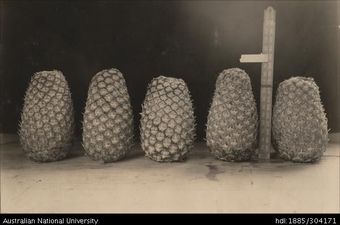Pavlova and pineapple pie : mixed parentage and Samoan-Pakeha identities in New Zealand
- Description:
- This thesis seeks to not only identify and describe the factors that influence identity in people of mixed parentage, but also to analyse why and how these influences operate. In order to do this, an ecological approach is taken which attempts to illuminate issues at the macro, meso and micro levels of influence. This is in order to understand the breadth of possible pressures and the subtle na...
- Display date:
- 2000
- Location:
- Samoa
- Format:
- Scholarly text
- Collections:
- Otago University Research Archive
- Contributors:
- Keddell, Emily
- Publisher:
- University of Otago
- Content partner:
- University of Otago
- Availability:
- Not specified
-
Copyright status: All rights reservedFind out more about what you are able to do with this itemThis item is all rights reserved, with means you'll have to get permission from University of Otago before using it. For more information, please see our use and reuse page.More informationUniversity of Otago has this to say about the rights status of this item:
All items in OUR Archive are provided for research purposes and private study and are protected by copyright with all rights reserved unless otherwise indicated.
What can I do with this item?Non-infringing useNZ copyright law does not prevent every use of a copyright work, and this item may be hosted by an international institute or organisation. You should consider what you can and cannot do with a copyright work.No sharingYou may not copy and/or share this item with others without further permission. This includes posting it on your blog, using it in a presentation, or any other public use.No modifyingYou are not allowed to adapt or remix this item into any other works.No commercial useYou may not use this item commercially.
Welcome and warm Pasifik greetings
The information on this site has been gathered from our content partners.
The names, terms, and labels that we present on the site may contain images or voices of deceased persons and may also reflect the bias, norms, and perspective of the period of time in which they were created. We accept that these may not be appropriate today.
If you have any concerns or questions about an item, please contact us.

